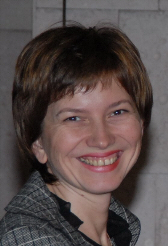СОВРЕМЕННЫЕ ТЕНДЕНЦИИ РАЗВИТИЯ ИНКЛЮЗИВНОГО ОБРАЗОВАНИЯ ЗА РУБЕЖОМ
Аннотация
Данная статья посвящена аналитическому обзору современных тенденций развития инклюзивного образования за рубежом. Раскрываются важные условия реализации теоретических оснований инклюзии в практику общеобразовательных школ. Автор ставит задачу определить основные стратегии, которые могут способствовать повышению качества и эффективности данного процесса
в России.
Ключевые слова
Литература
Armstrong, D., Armstrong, A.C., Spandagou, I. Inclusion: By choice or by chance?. International Journal of Inclusive Education, 2011, no.15, pp. 29-39.
Attwood, L. Promises and pitfalls of special education for pa-rents and professionals, 2014, 132 p. URL: https://ru.scribd.com/book/226431939/Promises-and-Pitfalls-of-Special-Education-for-Parents-and-Professionals
Biklen, D. Schooling without labels: parents, educators, and inclusive education, 2010, 215 p. URL: https://ru.scribd.com/book/247829023/Schooling-Without-Labels-Parents-Educators-and-Inclusive-Education
Florian, L., Young, K., Rouse, M. Preparing teachers for inclusive and diverse educational environments: Studying curricular reform in initial teacher education course. International Journal of Inclusive Education, 2010, vol. 14, no.7, pp. 709-722.
Freeman, S.F.N., Alkin, M.C. Academic and Social attainments of children with mental retardation in general education and special education settings. Remedial and Special Education, 2000,
vol. 21, no.3, pp. 3-18.
Hunt, P., Goets, L. Research on inclusive educational programs, practice and outcomes for students with severe disabilities. The Journal of the Special Education, 1997, no.31, pp. 3-35.
Karsten, S., Peetsma, T. The Dutch policy of integration put to the test: differences in academic and psychosocial development of pupils in special and mainstream education. Eropean Journal of Special Needs Education, 2001, vol. 16, no.3, pp. 193-205.
Kauffman, J.M., Landrum, T.J., Mock, D.R., Sayeski, B., Sayes-ki, K.L. Diverse knowledge and skills require a diversity of instructional groups: a position statement. Remedial and Special Education, 2005, vol. 26, no.1, pp. 2-6.
Leyser, Y. and Kirk, R. Evaluating inclusion: an examination of parent views and factors influencing their perspectives. International Journal of Disability, 2004, vol. 51, no. 3, pp. 271-285.
Lindsay, G. Inclusive education: A critical perspective. British Journal of Special Education, 2003, vol. 30, no.1, pp. 3-12.
Lindsay, G. Educational psychology and the effectiveness of inclusive education/mainstreaming. The British Journal of Educational Psychology, 2007, no.77, pp. 1-24.
Marcovic, M.R., Spacisour, B.B. Edication in Serbia: Inclusive and E-Learning opportunities. Sebian Journal Of Management, 2010, vol. 5, no.2, pp. 271-281.
Mariga, R. McConkey Inclusive Education in low-income countries: a resource book for teacher educators, parents trainers and community development: Dissabillity Innovations Africa an imprint of African Books Cillectiv, 2014, 144 p. URL: https://ru.scribd.com/book/245136476/Inclusive-Education-in-Low-Income-Countries-A-resource-book-for-teacher-educators-parent-trainers-and-community-development
Mitchel, D. What really works in Special and Inclusive Education. Croydon: CPI Group (UK) LTD, 2014, 348 p.
Niemeyer, M. The rights to inclusive education in Germany. The Irish Community Development Law, 2014, vol. 3, no.1, pp. 49-64.
Rose, R. Primary school teacher perceptions of the conditions required for including pupils with special educational needs. Educational Review, 2001, vol. 53, no. 2, pp. 147-156.
Saint-Laurent, L., Dionne, J., Giasson, J. Academic achievements effects of an in-class service model on student with or without disabilities. Exceptional school students with moderate mental retardation, 1998, no.64, pp. 239-253.
Salend, S.J. Strategies and sources to evaluate the impact of inclusion programs on students. Intervention in School and Clinic, 2000, vol. 35, no.5, pp. 264-270.
Takashi, J. Multiple intelligence theory can help promote inclusive education for children with intellectual disabilities and developmental disorders: Historical reviews of intelligence theory, measurement methods, suggestions for inclusive education. Creative education, 2013, vol.4, no. 9, pp. 605-610.
Westwood, P. Commonsense methods for children with special needs. – London and New York: Routledge.Taylor and Francis Group, 2007, 254 p.
DOI: https://doi.org/10.12731/wsd-2015-5.3-1039-1051
Ссылки
- На текущий момент ссылки отсутствуют.
(c) 2016 В мире научных открытий
ISSN 2658-6649 (print)
ISSN 2658-6657 (online)






